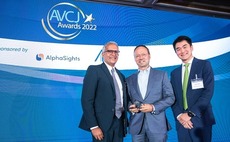
China PE in the US: From theory to practice
Chinese private equity firms’ growing interest in US acquisitions has yet to translate into meaningful deal flow. These relatively new arrivals need time to familiarize themselves with a competitive market
From massage chairs to pocket projectors, Brookstone's eclectic range of lifestyle products looks set to launch in China. The US-based retailer, which started out as a catalogue business in the 1960s but grew to more than 300 outlets nationwide, has been struggling for the past seven years and filed for bankruptcy protection in April ahead of a planned sale.
The owner of domestic gift shop chain Spencer's was expected to play the white knight, but last week a Delaware judge confirmed that a Chinese consortium would buy Brookstone for around $137 million. The company is expected to emerge from bankruptcy in July and from there embark on a journey that will lead to new markets and, hopefully, commercial rejuvenation.
Chinese PE firm Sailing Capital led the deal with support from Sanpower Group, which earlier this year acquired a majority stake in UK retailer House of Fraser. Sailing was set up by Shanghai International Group two years ago with the express purpose of making investments overseas, adopting a Western-style fund structure and hiring executives with Western experience. This is its first foray in the US.
Sailing should be a poster child for the Chinese outbound story. The firm is keen invest in overseas assets with unrealized China growth potential - in areas ranging from industrial manufacturing to consumer goods - and is happy to work alongside other PE investors in a minority capacity, provided it gets governance rights and a path to liquidity. Intermediaries and PE firms are bringing deals to Sailing's attention, but the phone isn't ringing off the hook.
"Historically, the firm has kept a low profile so there aren't as many inbound calls as people would like right now," a source close to Sailing tells AVCJ. "It is also a new firm and still in the process of building its record. All of this works fine on paper, but you have to believe it works."
For all the hype about Chinese private equity firms going overseas, they have yet to make a significant imprint on the US market. This is not for lack of interest. While some firms are held back by a lack of familiarity with M&A in America, others have the competency but not the local recognition as effective deal closers.
"We are seeing a tremendous amount of activity. It is suddenly becoming real; Chinese PE firms are looking overseas," says Bob Partridge, managing partner for Greater China transaction advisory services at EY. "In the last three months we've had about 15 of these deals, although none have been announced and it's still too early to tell if they will go through."
Behind the numbers
The fundamental thesis makes sense. Since 2000, China's economy has grown more than seven-fold, climbing from sixth to second in the global rankings. Virtually every multinational has a sizeable presence in China, whether it sells industrial equipment to factories or hamburgers to consumers. It is also a market of increasing strategic importance to middle-market US players that have yet to realize the full potential of their brands in Asia. A company flat-lining domestically could be revitalized overseas.
Chinese outbound M&A stands at $27.2 billion so far this year across 186 transactions, according to Thomson Reuters. In the US, $1.8 billion has been deployed in 33 deals. While the global numbers indicate a general upward trend - Chinese companies spent $65.5 billion on acquisitions in 2013, more than four times the 2006 figure - the US data are more sporadic.
The spikes in activity are explained by a cluster of mega-deals, from Lenovo Group's $1.75 billion acquisition of the IBM PC business in 2004 to Shuanghui International's $7.3 billion purchase of Smithfield Foods in 2013. The sub-$500 million deals that might appeal to Chinese or Asian private equity firms don't make much of a mark.
CITIC Capital Partners has been the most prolific practitioner in the US, completing a string of deals out of its international funds, relying on a dedicated US team. Brookstone is Sailing's first transaction in the country and FountainVest Partners is expected to follow in due course with its debut US deal, buying a majority stake in auto components manufacturer Key Safety Systems.
The mismatch between hype and reality - or, to be more generous, expressions of interest and acts of execution - is in part due to the outbound thesis only recently becoming part of many China GPs' remit.
"It is becoming more of a mainstream strategy," says Brian Doyle, managing partner at CITIC. "People realize that in buying an American company with a lot of exposure and growth in China you get the best of American governance and financing and management teams but the China upside as well."
In this nascent phase of activity, however, there are two further, interrelated reasons that explain why transacting deals is a challenge. Both can equally be applied to Chinese strategic players also seeking acquisitions in the US. First, most middle-market assets come to market via a competitive process. Second, sellers are wary of Chinese buyers' ability to get deals over the finishing line.
"The attitude is often, ‘Yes, I'm getting a great price but I would have to enforce my rights against a Chinese buyer and I don't trust the Chinese courts. I'd rather use you as a stalking horse to bring the second bidder higher and even if they don't match you I'll take them because of the certainty of closing,'" says Daniel Dusek, a partner at Skadden Arps. "We advise our clients that they have this perceived jurisdictional disadvantage so they must find other ways to make bids appear a bit more attractive."
Dusek is currently working on two deals in which Chinese groups are trying to buy US assets with a view to opening up new growth channels in China. One involves a well-known Chinese PE firm and the other a consortium of Hong Kong and Taiwan high net worth individuals. It is the latter buyer that would likely raise alarm bells with US sellers who read the headlines surrounding the collapsed bid for AIG's aircraft leasing business by a Chinese consortium. The legal battle is ongoing over a portion of the $4.8 billion transaction held in escrow in Beijing.
However, a lot of recent Chinese interest in US assets comes from unions that may be similarly loose. In addition to the likes of CITIC, FountainVest, Hony Capital, CDH Investments, Hopu Investments and Fosun Group, three of the Big Four Chinese state-owned banks are said to be looking for deals, operating not so much through formal institutional funds as vehicles that may include sovereign or strategic money. The difference between capital commitment and capital intent is not lost on sellers.
"One of the problems is when you have a new fund with bank A partnering sovereign wealth fund B plus another source of capital, there are a lot of dynamics there. When this new fund competes against a US PE house in an auction, the seller sees the new fund as the highest closing risk because it doesn't have a track record of closing deals," says EY's Partridge. "They have capital but it will take a while before they figure out how to win a competitive bid."
Other issues may include a lack of familiarity with the US auction process and the speed of action it might require, a particular concern in consortium situations where multiple parties must affirm a deal; cultural barriers, which may lead to discomfort with the responsibilities that come with owning a US business, such as pension liabilities; concerns about getting US regulatory approvals and financing; and a fear of overpaying for assets.
Getting comfortable
These obstacles can be surmounted simply by employing investment professionals with experience of US deals. A global buyout firm will have the expected level of competence but move down the scale through pan-regional private equity firms to China-only players and the talent pool becomes shallower.
According to one industry participant, while it is not unusual for the senior executive working on a transaction to be familiar with the US, many of his subordinates are completely untested in such environments. "You would be surprised how little experience from a US perspective these deal teams have," he says. "They may have a sophisticated counsel and financial advisors, but we've seen situations in which the seller asks, ‘Do these guys have no idea what they are signing up to?'"
There are various means of assuaging discomfort on the financial side. A sum is normally placed in escrow to cover expenses and break fees should the deal fail to go through. In many cases the money is held outside of China to avoid a repetition of the AIG situation.
Skadden Arps' Dusek notes that an increasing number of Chinese buyers are willing to include representation and warranty insurance in deals so that there is no post-closing indemnity by sellers. With pricing at 2-3% of the insured amount it can be a compelling way to cover risk while simultaneously making the bid more attractive to the seller.
Comfort also comes from working with a local private equity partner. Both sides stand to benefit from such arrangements: the Chinese PE firm gets access to deal flow in the US and the US counterpart is able to pass responsibility for due diligence, management and development of the China business to someone with resources on the ground. This has been the case in all of CITIC's deals in the US, but as it stands, there is little sign of other Chinese PE firms doing the same.
"It has opened up a lot of deals, but it's not easy to partner with a US PE firm," says CITIC Capital's Doyle. "You have to build these relationships over time."
Engineered Controls International (ECI), a value manufacturer bought late last year in conjunction with Windjammer Capital, is a case in point.
The seller was Sentinel Capital Partners, which two years earlier was CITIC's partner in the acquisition of casters manufacturer Colson Group. By the time Sentinel was preparing to exit ECI, CITIC was familiar with the PE firm's portfolio and recognized it as an asset with a China growth angle. Contact was made with an investment professional at Windjammer who previously worked at Sentinel and a new alliance was formed.
Audax Group became acquainted with the Chinese firm through similar circumstances. About five years ago, CITIC Capital conducted due diligence on one of Audax's portfolio companies in partnership with another private equity firm. That deal didn't go through but Audax and CITIC have since teamed up on acquisitions of two industrial manufacturers, Elgin Equipment and Aavid Thermalloy.
"I wanted to know why there were two parties at the table and once I understood their value proposition we developed a direct relationship and have done two deals together," recalls Oliver Ewart, a managing director at Audax. "It would have been possible to buy these companies on our own - execution doesn't require Chinese capabilities and the businesses are run well out of the US - but we thought it would be a better to have a Chinese partner in terms of evaluating the deal and ultimately building the business."
Challenges emerge in the absence of established ties. Partnership deals between private equity firms are fiercely negotiated under any circumstances and when a US mid-market firm enters into a deal China may be one of a number of considerations - "China is often an element of the investment thesis but it is not the tipping point," Ewart adds.
In certain cases they will also factor the risks attached to dealing with an unknown foreign partner into the economics and terms of the transaction.
EY's Partridge recalls one situation in which the prospective Chinese buyer sought out a US private equity firm as a co-investor because there was an expectation that the business might one day be split in two. In this context, to appear credible to company management, the buyer wanted a local partner. But he agrees that US PE firms are wary of entering into such arrangements.
"The difficulties are clear in some of these negotiations as they try to get to a place where both parties feel they have a real joint venture in how they go about it," Partridge adds. "Partnerships provide an opportunity for US firms to look at deals they might have otherwise excluded themselves from, but it will take a while before they get comfortable doing that."
Balance of power
At the same time, the balance of power in these partnerships may be tilting in favor of the Chinese PE firms, which would make negotiations even more fraught. Mid-market investment banks and other intermediaries typically tasked with selling assets have set up offices in China and routinely show deals to local strategic and private equity players. CITIC's Doyle estimates that 90% of his US deal flow used to come from US PE firms; now it is more like 50-50.
Deal-sourcing has an impact on the division of equity and CITIC, having been the minority partner in previous investments, is now looking to take the lead. Indeed, Kenneth Pang, China private equity lead at KPMG, sees no significant trend of Chinese PE investors working with overseas counterparts and doesn't necessarily expect to see it. Rather, he expects them to run their own deals and bring in foreign managers experienced in overseas transactions.
It is part of a broader evolution that should, ultimately, see Chinese private equity firms close the skills gap, build up track records in the US and put paid to the negative perceptions. Not everyone will have the resources to make the jump, but the underlying forces driving up China's share of the global economy suggest the opportunity is only going to get bigger. And if US private equity firms aren't co-investing alongside their Chinese counterparts, they may be selling to them.
Once again, it sounds great in theory, but industry participants on the US side are waiting to see the realization of this potential. They also put the evolution into a different context: we are seeing a niche widening, not a paradigm shift in the M&A environment. America will remain a competitive market, no matter who the buyer is.
"We are seeing a lot of activity but it's a gradual process because from a numbers perspective, the market is deep," says Joe Chang, China CEO and managing director at Lincoln International, which has brokered the sale of four companies to Chinese buyers in the last 18 months.
"There are probably only about two dozen names, including the more industry-specific names as conglomerates set up their own funds. They are operating in a pool of hundreds of thousands of guys in the US looking for deals."
Latest News
Asian GPs slow implementation of ESG policies - survey
Asia-based private equity firms are assigning more dedicated resources to environment, social, and governance (ESG) programmes, but policy changes have slowed in the past 12 months, in part due to concerns raised internally and by LPs, according to a...
Singapore fintech start-up LXA gets $10m seed round
New Enterprise Associates (NEA) has led a USD 10m seed round for Singapore’s LXA, a financial technology start-up launched by a former Asia senior executive at The Blackstone Group.
India's InCred announces $60m round, claims unicorn status
Indian non-bank lender InCred Financial Services said it has received INR 5bn (USD 60m) at a valuation of at least USD 1bn from unnamed investors including “a global private equity fund.”
Insight leads $50m round for Australia's Roller
Insight Partners has led a USD 50m round for Australia’s Roller, a venue management software provider specializing in family fun parks.








